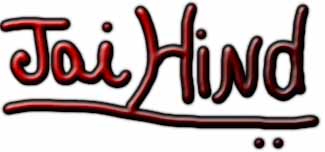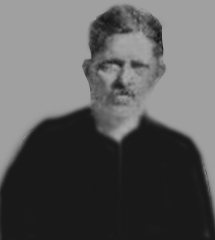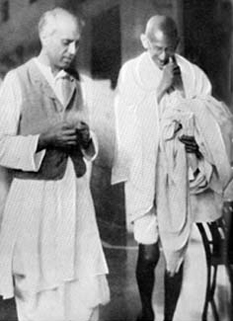 |
 |
| Back to Home |
|
|
 |
| Eldest Son - Harilal
Gandhi
Harilal Gandhi (1888-1948) rebelled most strongly. He renounced all family ties in 1911 and embarked upon a tragic, lifelong path of self-destruction. He became a Muslim convert, an alcoholic, an embezzler; accounts of his arrests, public drunkenness, and destitution became commonplace. "I was a slave of my passions when Harilal was conceived," said Mohandas. Harilal appeared at his father's funeral in such derelict condition that few recognized him. He died in a tuberculosis sanitarium two months later. Gandhi my father Director Feroze Abbas Khan, PG, 134 mins, Subtitles Stars Darshan Jariwala, Akshaye Khanna, Shefali Shah, Bhoomika Chawla. 1948, India. When the Bombay cops pick up a gravely ill destitute off the streets, they need his fathers’ name in order to admit him to hospital. Why does the dying beggar answer ‘Mohandas Karamchand Gandhi’? Much is known about Gandhi’s non-violent ideals and the ‘Quit India’ movement he founded which was directly responsible for the British grant of independence to India and the creation of Pakistan. Little is known about his family life. This bio-pic attempts to redress the balance. It traces the disintegrating relationship between the Mahatma or ‘Bapu’ (father) (Darshan Jariwala) as he was fondly known, with the eldest of his four sons, Hirilal (Akshaye Khanna). Told in flashback, the film establishes the uneasy tensions in the family’s South African sojourn where Gandhi practised as a barrister up to 1915. The patriarch’s steely insistence that Hirilal abandon his education and wife Gulab (Bhoomika Chawla) in order to assist him in his fight against the inequitable apartheid system, leads to resentment by the young Hiralal. For More Details of Gandhi Family... Post 1915, the entire family relocates to India where resistance to British imperialism is gaining momentum. Hirilal tries to assert his own independence but he is thwarted by opportunists who use the Gandhi name to establish fraudulent companies and discredit the freedom movement. The Mahatma publicly disowns his wayward son; Hirilal sinks into alcoholic depression. Adapted from his stage play of the same name, Feroze Abbas Khan’s debut is an exploration of a taboo topic in modern India: the possible demerits of Gandhian idealism. Indeed, the film has already created controversy in India. The fuss is unwarranted. Made with the co-operation of the surviving Gandhi family, Khan’s film frustratingly refuses to take sides and portrays both protagonists as flawed individuals caught up in circumstances beyond their control. It is a film of performances: Jariwala gets the Mahatma’s mannerisms eerily right, Khanna attempts to emote but it is Shefali Shah as the suffering wife Kasturba who holds it all together. Her understated portrayal of the woman who attempts to bridge the emotional gap between father and son eschews melodramatic hysteria. The rambling narrative of the first hour with a few short songs (frustratingly, not subtitled) could be edited. Khan’s direction betrays his theatrical background: many scenes simply act as a convenient plot device in order to propel the narrative. But this is a largely successful attempt at intelligent Indian cinema. Moving without being manipulative, Gandhi my father is largely devoid of the bolly-clichés so typical of the ‘formula’. A worthy companion piece to Attenborough’s Oscar classic  |
| Back to Home |
|
||||
 |
 |
 |
 |
 |